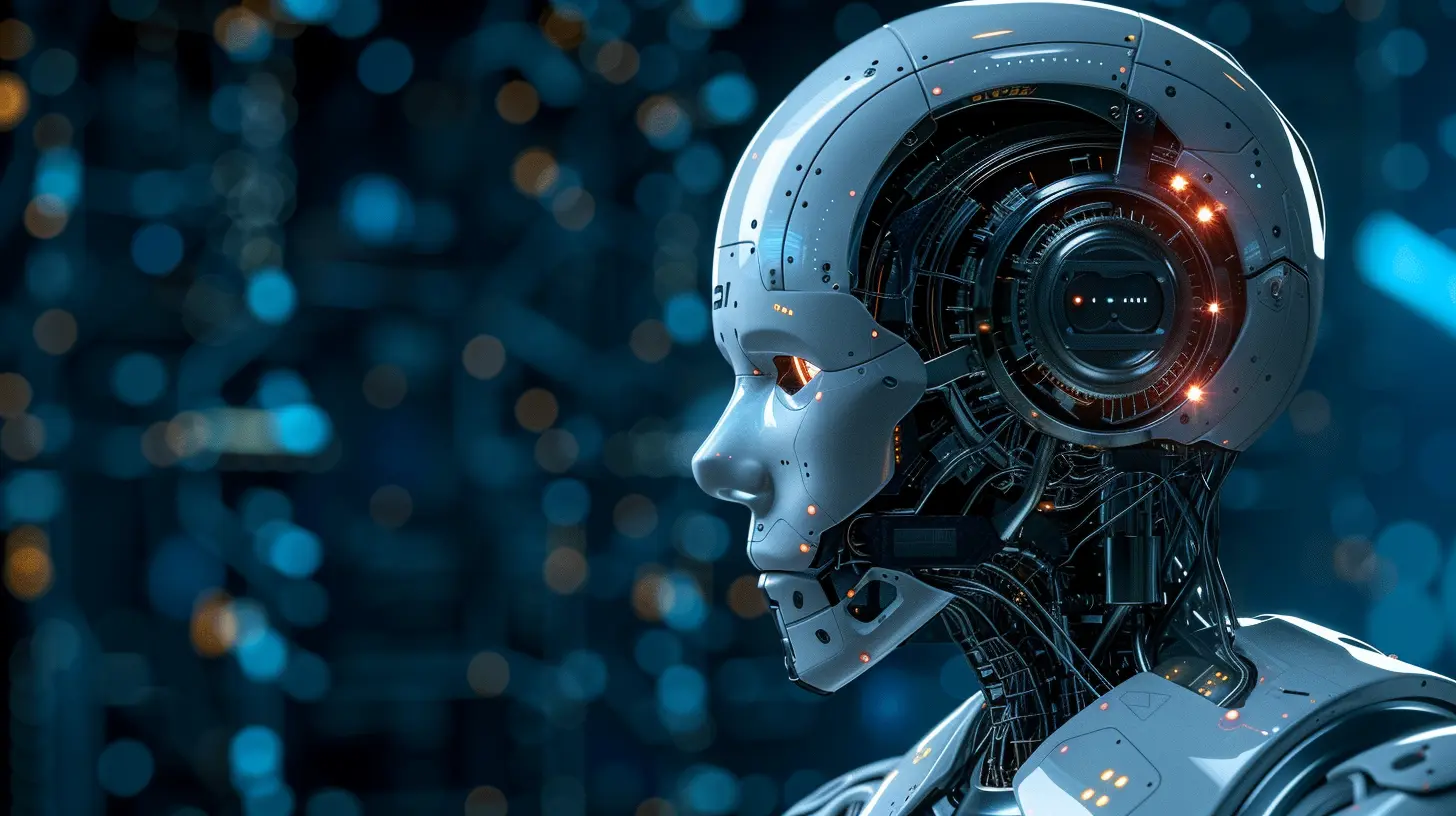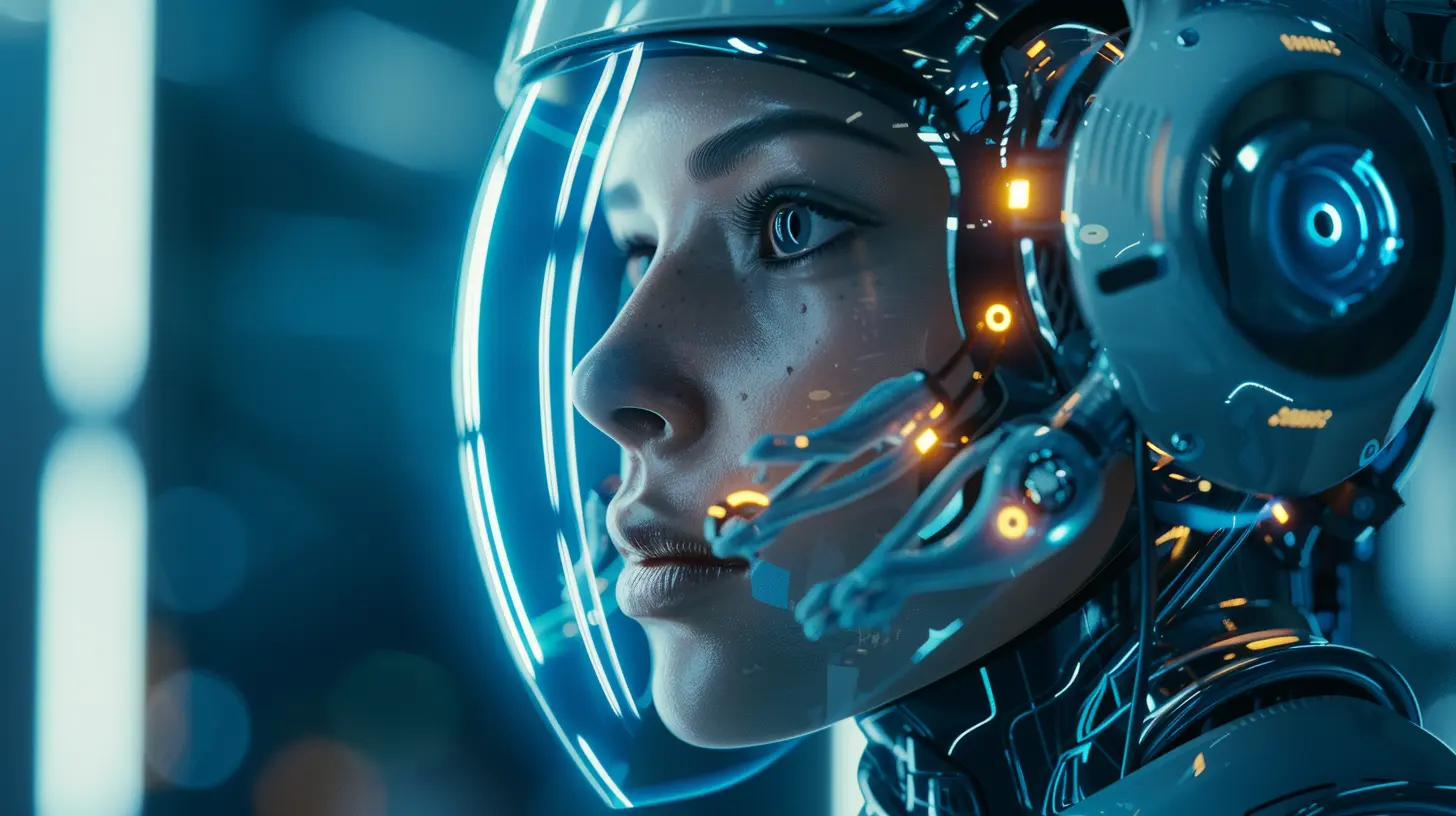How AI-Powered Assistants Are Becoming Smarter and More Human-Like
8 September 2025
Artificial Intelligence (AI) is no longer a futuristic dream—it's here, shaping our everyday lives in ways we never imagined. From answering our random late-night questions to scheduling meetings, AI-powered assistants like Siri, Alexa, and Google Assistant have been growing smarter and, surprisingly, more human-like.
But have you ever stopped to wonder how these virtual helpers are evolving? How do they "understand" us better now than they did a few years ago? And what does the future hold for these digital companions?
Let's dive into the fascinating world of AI-powered assistants and see how they're leveling up to become more intuitive, conversational, and lifelike.

The Early Days of AI Assistants
When AI assistants first hit the scene, they were pretty basic. You could ask them simple things like, "What's the weather like today?" or "Set an alarm for 7 AM." Sure, they got the job done, but they were far from the smart conversationalists they are becoming today.Early AI assistants relied on simple predefined scripts and struggled with anything outside their programmed responses. They weren’t great at handling context, and misunderstandings were common. If you asked something slightly differently than expected, you'd often get a robotic or irrelevant response.

How AI Assistants Are Becoming Smarter
Thanks to advancements in machine learning, natural language processing (NLP), and deep learning, AI-powered assistants have significantly improved. They no longer just recognize words—they understand intent, context, and emotion.1. Natural Language Processing (NLP) Improvements
One of the biggest game-changers has been the advancement of NLP. AI assistants now use sophisticated NLP models like OpenAI’s GPT-4 and Google's BERT to analyze and interpret our speech more naturally.- They can understand slang, regional accents, and even sarcasm.
- They remember previous parts of the conversation for better context.
- They generate more human-like responses rather than robotic, pre-programmed answers.
In other words, chatting with an AI assistant today feels much more like talking to a friend rather than a clunky software program.
2. Machine Learning and Personalization
AI assistants are also getting better at learning from experience—just like humans. Through machine learning algorithms, these assistants analyze patterns in your behavior and adapt accordingly.- If you always check the news in the morning, your assistant might start providing news updates when you wake up.
- If you listen to jazz while working, it may suggest jazz playlists at your regular work hours.
- If you frequently order pizza on Friday nights, it might remind you (or even place the order for you!).
This personalization makes interactions feel much more tailored and intuitive, creating a stronger connection between humans and AI.
3. Improved Voice Recognition and Speech Synthesis
Another crucial upgrade has been in speech recognition and voice synthesis. AI assistants now:- Recognize different voices and personalize responses accordingly.
- Understand complex, multi-step commands.
- Sound more natural, with better inflections, pauses, and expressiveness in speech.
Gone are the days of the monotone, robotic voice. Today’s AI assistants have more dynamic, expressive tones, making conversations smoother and more comfortable.

AI Assistants Are Becoming More Human-Like
The improvements in AI go beyond just raw intelligence; they’re becoming more emotionally intelligent as well.1. Emotional Intelligence and Sentiment Analysis
Imagine this: You say, "I'm feeling down today," and instead of responding with, "I don't understand," your AI assistant replies with, "I'm sorry to hear that. Want to listen to some uplifting music?"Thanks to sentiment analysis, AI assistants can now detect emotions in your voice and text. They can then tailor responses to match your mood, offering comfort or relevant suggestions.
2. More Engaging Conversations
AI assistants are moving beyond answering basic queries—they’re engaging users in actual conversations.- They can crack jokes, tell bedtime stories, and even engage in small talk.
- Conversational AI models like ChatGPT can debate topics, provide witty remarks, and maintain contextual discussions.
- They are becoming better at detecting when they’ve misunderstood something, reducing frustrating misunderstandings.
This makes interactions feel less like talking to a machine and more like chatting with a knowledgeable friend.
3. AI Avatars and Visual Representation
Many companies are taking AI assistants a step further by giving them faces and digital bodies—AI avatars. Microsoft’s Xiaoice and Samsung’s Neon are great examples of AI-powered virtual beings that look, sound, and behave like humans.With advancements in deepfake technology and AI-generated voices, we may soon interact with AI companions that:
- Have realistic facial expressions that match their tone.
- Maintain eye contact during video calls.
- Respond with subtle emotional cues, making interactions feel more human.

The Ethical Considerations of AI Assistants
As exciting as these advancements are, they also raise important ethical questions.- Privacy Concerns: AI assistants are always listening. How much data are they collecting? How is it being used?
- Dependence on AI: Will people become too reliant on AI assistants for basic tasks and decision-making?
- Human Replacement: If AI becomes too human-like, will it impact real human relationships and interactions?
Companies must ensure responsible AI development, prioritizing user privacy, data security, and ethical AI behavior.
The Future of AI-Powered Assistants
So, what’s next for AI assistants?- Even Smarter Reasoning: AI will get better at understanding complex questions, reasoning through problems, and providing insightful responses.
- Deeper Personalization: Future AI assistants will act like true personal assistants, proactively managing schedules, drafting emails, and even offering life advice.
- More Seamless Integration: AI will integrate more smoothly with smart homes, cars, and wearable devices, making everyday tasks even more effortless.
With AI evolving at lightning speed, we might soon have virtual assistants that feel indistinguishable from real human interactions.
Final Thoughts
AI-powered assistants have come a long way from their clunky, robotic origins. Thanks to advanced NLP, machine learning, and voice recognition technologies, they are smarter, more intuitive, and more human-like than ever before.While there are valid ethical concerns, one thing is clear: AI assistants will continue playing a huge role in shaping our digital future.
So, the next time you chat with Siri or Alexa, remember—you’re not just talking to a simple program. You’re interacting with a continually evolving piece of technology that’s getting closer to understanding you just like a real human.
all images in this post were generated using AI tools
Category:
Tech NewsAuthor:

Ugo Coleman
Discussion
rate this article
1 comments
Zevros Tucker
Great article! It's fascinating to see how AI-powered assistants are evolving. Their increasing human-like qualities can truly enhance our daily interactions and productivity.
September 24, 2025 at 12:12 PM

Ugo Coleman
Thank you! I'm glad you found it fascinating. The evolution of AI assistants is indeed exciting and impactful!


